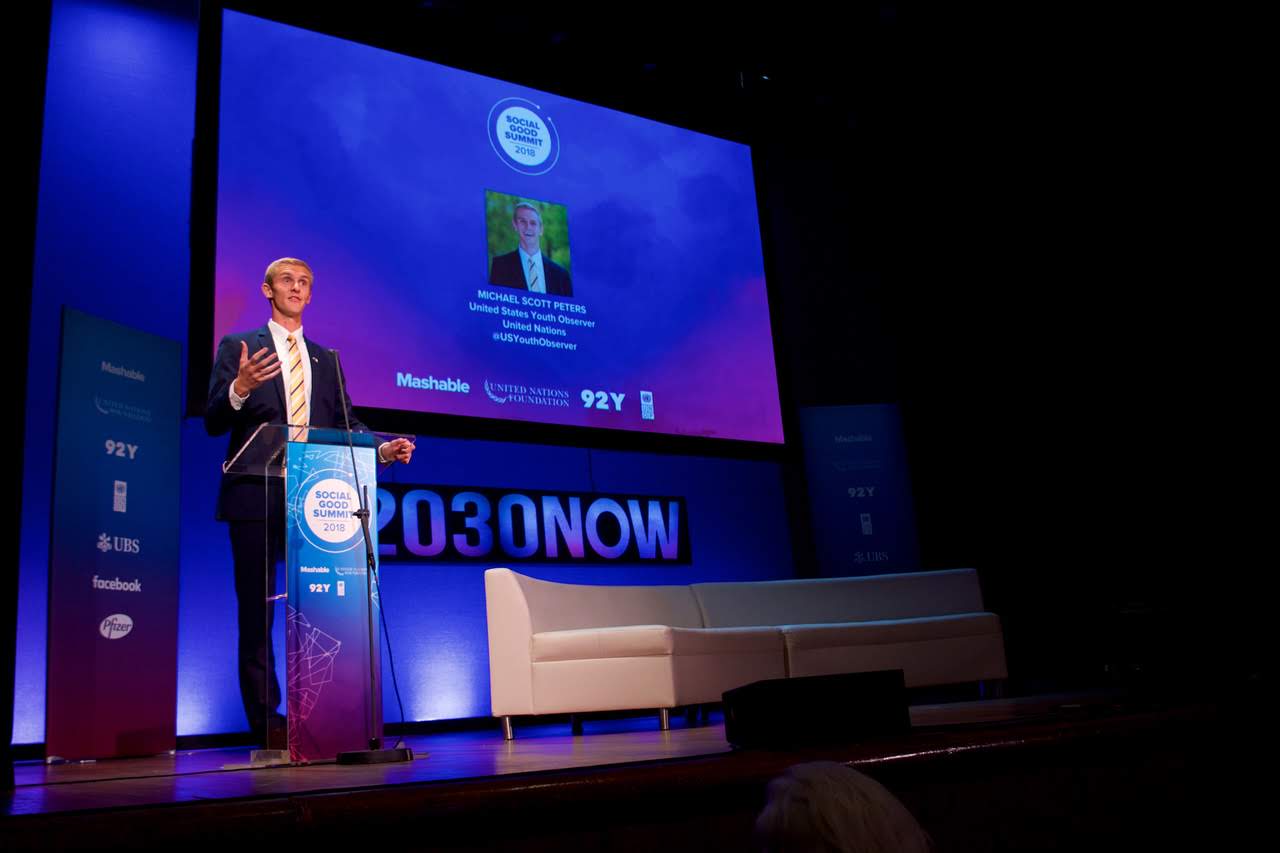Reaching Zero Hunger on College Campuses
We all know hunger is a global issue, but did you know it is often a hidden crisis on American college campuses? A recent survey published by researchers at Temple University and the Wisconsin HOPE Lab found that more than a third of college students don’t always have enough to eat. With the rising cost of tuition, books, and housing, many have trouble affording the necessary expenses for their meals.
Innovative student leaders across the country are realizing that progress towards an ambitious global issue, such as hunger, can be achieved in your local community. As the former student body president (2017-2018) for Utah State University, Michael Scott Peters, U.S. Youth Observer to the UN, solicited continued support for a program specifically for college students: the Student Nutrition Access Center (SNAC). The SNAC office provides students with access to a convenient food pantry while also fulfilling a mission of reducing food waste on campus.[1] This local initiative helps Utah State University address a larger food security problem while improving nutrition and promoting agriculture. Moreover, the SNAC office works towards Zero Hunger by collecting canned food from the local food pantry, breads and yogurts from campus dining services, and fresh vegetables from the Utah Conservation Corps Community Farm.[2]
All recovered food is that is offered in the SNAC office is given to students in need. Because food insecurity is often interconnected with other issues, the SNAC office provides information for various social services on campus to promote a culture of self-reliance.[3] Thanks to the assistance of the university’s dining services, the program has been able to save over 1 ton of food every month—with a total savings of 23,527 pounds of food in 2017.[4] Through greater food security and reduced food waste on campus, this community effort brings us one step closer to Zero Hunger. “Michael’s work on Zero Hunger at Utah State University exemplifies what we try to empower all United Nations Association (UNA-USA) campus chapters to do– act as local leaders for the Global Goals,” said Anna Mahalak, UNA-USA Youth Engagement Manager.
It is no doubt that youth engagement is central to making progress on global issues. As U.S. Youth Observer to the UN, Michael Scott Peters’ mission is to empower other American youth to take action in their own communities. He draws on his former experience as a student body leader to advocate for youth representation, stating, “After years of service in student government, I have learned the importance of youth representation. I’m looking forward to engaging with you this coming year to let our collective voice be heard at the UN!”
Young people identify as global citizens; they understand the important issues that our world is currently facing and their interconnectedness to local issues. Throughout this next year, Michael hopes to use his experiences as a student leader to inspire thousands of other American youth leaders and mobilize them to act on preventing hunger and food insecurity locally and globally. “Ideally, what we would want is for people to get inspired on these issues and take it back to their high school, take it back to their college,” said Michael.
Get ideas for how to take action with the UNA-USA World Food Day Toolkit.
[1] https://servicecenter.usu.edu/programs/snac
[2] https://servicecenter.usu.edu/programs/snac
[3] http://usustatesman.com/oncampus-food-pantry-waiting-to-feed-students/
[4] http://www.upr.org/post/university-program-helping-reduce-campus-food-waste




